 WSF 2015 - Global Campaign to Dismantle Corporate Power
| |
| World Social Forum, Tunis 2015 The Global Campaign to Dismantle Corporate Power and Stop Impunity is a global response to unaccountable corporate power. It brings together existing campaigns, networks and social organizations from diverse regions and countries, as well as campaigns against specific corporations or sectors. It provides facilitation for dialogue, strategizing, exchanging information and experiences, acting as a space for greater visibility and deepening of solidarity and support for struggles against TNCs. |  |  |  |  |  |  |  |  |  |  |  |  |  |  |  |  | | Introduction : Diana Aguiar Orrico Richard Girard
| Vivian Huang
Asian Pacific Environment Network | Olga Loforte Marcha Mundial das Mulheres, Moçambique
| Brahim Oubaha Attac, Maroc
| Pascoe Sabido
Corporate Europe Observatory | Sally Burch Justnet Coalition
| Tom Kucharz
Ecologistas en Accion | Brid Brennan
TransNational Institute, The Netherlands
| Gabi Zimmer
Chairwoman Left Group European Parliament | Brid Brennan
The Global Campaign | Luis Campos
CTA, Argentina Workers Union | Yildiz Temurturkan World March of Women, Turkey
| Diego Martinez
Friends of Earth, Colombia | Leandro Scalabrin MAB / La Via Campesina, Brazil
| Camille Chalmers PAPDA, Haiti
| Trade unions and civil society movement
|
|  |  | | At the same time, it is working towards an International Peoples' Treaty, which provides a political framework for international and national binding legislation to limit TNCs operations and human rights violations.
Why a Global Campaign TNCs have played a key role in the globalization process and the application of neoliberal measures throughout the world. The 200 largest TNCs accumulated 31% of the global GNP in 1995 and their sales totalled 6 billion dollars in 1999. ETNs accumulate wealth and power through "accumulation through depossession". The majority of TNCs have established their operations in countries with little protection for working people and nature, appropriating for themselves the products of labour and common goods. Thus, a large part of their profits, if not all of them, come from wealth plundered from countries in the Global South. TNCs have been acting in violation of peoples' rights, as they prevent people from organizing individually and collectively and from having a decent life and decent work. As the living expression of capitalism, TNCs only see human beings as a consumer, as a factor of production and disposable waste. TNCs systematically violate the rights of millions of people throughout the world and are responsible for their empoverishment. In what we refer to as Damage to Life, TNCs are responsible for crimes against the physical integrity of social and community leaders, repression and criminalization of social struggles and resistence. They also attack public health by blocking the access of people from Brazil, Peru, Colombia, Ecuador and many other countries to generic medicines, for example, or by using techniques that harm the health of their workers. TNCs are responsible for the pollution produced by their activities, namely in the extractive industries, and the impacts of mega-projects on local ecosystems and communities. TNCS violate the right to self-determination and consultation of indigenous people, when they operate in their territories and do not take into account the obligation to consult the affected people. They also operate in territory that one country has stolen from another, as is the case in Palestine, or in dictatorships, as in Equatorial Guinea. TNCs are responsible for the indecent economic, social and environmental conditions the majority of the world's population lives in. In order to attract investments, governments from some countries modify existing labour and environmental laws, or create free trade zones that are exempt from taxation and legislation. The peoples' demands for better labour conditions and even compliance with minimum stands are met with repression and threats from the companies. When TNCs abandon a country, the impacts they have generated remain and are no reparation or compensation is given. |
|
|


